Silent Era Home Page > PSFL > Companies > W > Warner’s Features, Incorporated
|
Warner’s Features, Incorporated
|
|
|
Type of Company
|
Distribution company
|
|
Country of Origination
|
United States of America
|
|
Years of Operation
|
Formed August 1913
Active September 1913 through circa 1914
|
|
Company Principals
|
P.A. ‘Pat’ Powers, president
Abraham ‘Albert’ Warner, vice president
Harry M. Warner, sales manager
H.M. Goetz, assistant sales manager
|
|
Company Offices
|
8th Floor, Leavitt Building, West 46th Street, New York, New York, USA (circa 1913-1914)
|
|
Company Exchanges
|
unknown
|
|
Warner’s Features, Incorporated, was reorganized from Warner Feature Film Company, a State Rights distribution company. The corporation was later reformed as United Film Service circa late 1914 or January 1915.
References: Website-AFI.
|
[The Moving Picture World, [?] ? 1914, page 262] Warner Features, Inc. Company’s Success in the Film Industry Is Notable Example of Strict Adherence to Carefully Thought Out Purpose. The commercial world at large is full of examples of successes which have been made by strict adherence to a purpose. Big businesses have been built by men possessed of an idea in which they had faith and upon which they were willing to stake their reputations by closely identifying it with their names. The Warner’s Features, Inc., business is a notable example of this in the moving picture industry. / One cannot go back to ancient history to begin a yarn about the development of any business in the moving picture field for the reason that the industry itself is still quite young. However, it may be said that it was a good many years ago Abe Warner and a couple of equally aggressive associates began the campaign which has made the Warner’s Features, Inc., business what it is today, possessed of little more than an idea. / The first company formed was Warner’s Feature Film Company, with A. Warner as president, H.M. Warner as secretary and treasurer, and H.M. Goetz as general auditor. The idea was to supply what seemed to be a healthy demand for multiple reel pictures as business builders in thousands of theatres which had sprung up thoughout the United States. / In August, 1913, the original company gave way to the present organization known as Warner’s Features, Inc., with the following officers: P.A. (Pat) Powers, president; A. Warner, vice-president; H.M. Warner, sales manager; H.M. Goetz, assistant sales manager. / In the eleven months which have elapsed since this reorganization, strict adherence to the original idea and intelligent and conscientious effort on the part of Mr. Powers and his associates have worked wonders until the name “Warner’s Features” has been eastablished as a guarantee of quality in photoplays from one end of the country to the other, and is equally well known among moving picture tradesmen and mere “moving picture fans.” / As he looks back at what has been accomplished, Mr. Powers likes to recall the first trio of feature releases, made in September, 1913. “In the Power of a Hypnotist,” “The Living Corpse,” and “Jephtha’s Daughter” caught the public fancy in such as way that “Warner’s Features” were immediately set upon the high road to success. / The Warner idea was to buy films in the open market, to avoid all contract entanglements which might result in the company’s exploitation of something not up to standard because of obligations previously incurred, and to pay the highest prices to film manufacturers in order that the house of Warner might be the first place visited by the producer with something particularly meritorious to sell. Important also was the company’s plan to protect the exhibitor by granting him exclusive rights to Warner features in his territory. / When the Warner’s Features, Inc., moved into their handsome offices on the eighth floor of the Leavitt Building in West Forty-sixth Street last October, they owned outright twenty-one branch offices located in the principal cities of the United States and Canada. The string of offices had been established after careful consideration of shipping problems which, in the earlier days, had been bobbing up day after day and week after week to drive exhibitors and exchange men alike to distraction because of disappointments which it seemed impossible to prevent. With the present Warner organization, New England the the East in general receive their film supply from offices in Boston, Mass.; Syracuse, N.Y.; Buffalo, N.Y.; New York City[;] Pittsburgh, Pa.; Wilkes-Barre, Pa.; Washington, D.C. and Wheeling, W. Va. The Southern exhibitors are taken care of by offices in Atlanta, Ga.; New Orleans, La.; Dallas, Tex.; and Louisville, Ky. The Middle West is served by offices in Cleveland, O.; Cincinnati, O.; Indianapolis, Ind.; Chicago, Ill.; St. Louis, Mo.; Kansas City, Mo.; Minneapolis, Minn.; and Detroit, Mich. Exhibitors in the West and the Far West look to offices in Denver, Col.; San Francisco, Cal.; Los Angeles, Cal.; and Seattle, Wash.; for their service and those in Canada to Toronto and Montreal. / The Warner’s Features schedule, from the beginning, has been made-up almost exclusively of three-reel releases, the judgment of Mr. Powers and his associates being that features of this size are best suited to the needs of the average exhibitor throughout the country. For a long time it has been the company’s practice to release three features a week. As a rule, these features are three-reel subjects, but occasionally one six-reeler and a three, or a five and a four, the total number of reels invariably being nine for the week, are released. This policy of specializing in three-reel pictures may be mentioned as indicative of the intelligent care which the Warner people have expended in building their business. The company’s representatives spend as much time in finding out just what exhibitors need as they do in the work of actually pushing their film wares, with the result that the exhibitor is led to believe that he is always “in the hands of his friends.” At the recent exposition at Grand Central Palace the Warner company asked exhibitors to decide by ballot what length features were best suited to their needs. / The company’s policy of paying the highest prices for features has served its purposes in attracting some of the best producers, and among the regular contributors to the Warner programs are the following companies: Gene Gauntier Feature Players, Sid Olcott International Players, Marion Leonard Film Company, Colorado Motion Picture Company, Albuquerque Film Manufacturing Company, Milano Film Company, Miller Bros, 101 Ranch Features, Ambrosio American Company, Pyramid Film Company, Paris Eclair and Mittenthal Bros. Film Company. Sidney Olcott, Stanner E.V. Taylor, Marshall Farnum, Jack J. Clark, H.C. Matthews, J. Farrell MacDonald, Otis B. Thayer, and Frank Beal are some of the popular directors whose work stands out in the Warner programs. / Mr. Powers, who has always been one of the most aggressive men in the independent film field, has used his intimate personal knowledge of the requirements of exhibitors throughout the country with striking success in building up the business of his company. His is, and long has been, the policy of not only providing the exhibitor with the right kind of features but also of helping the exhibitor “sell” his show to the public. The handsome lobby displays, lithographs and banners, which are sent out with the pictures to provide a regular “circus billing,” have helped a great deal in making Warner’s Features popular.
|
|
|
|

LINKS IN THIS COLUMN
MAY TAKE YOU TO
EXTERNAL WEBSITES
•
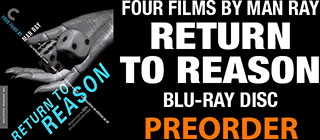
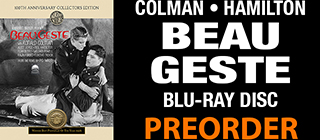


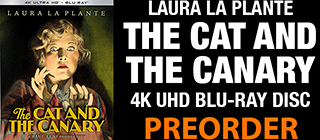

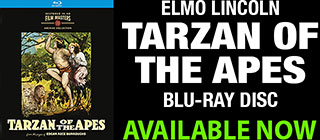
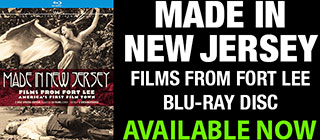




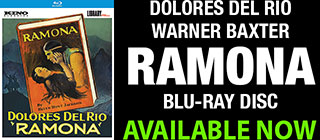
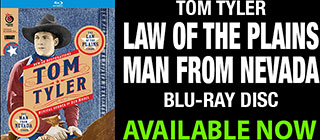
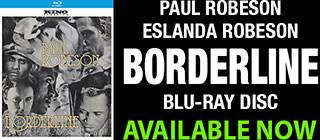

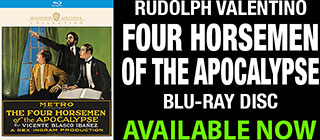

•
|




































